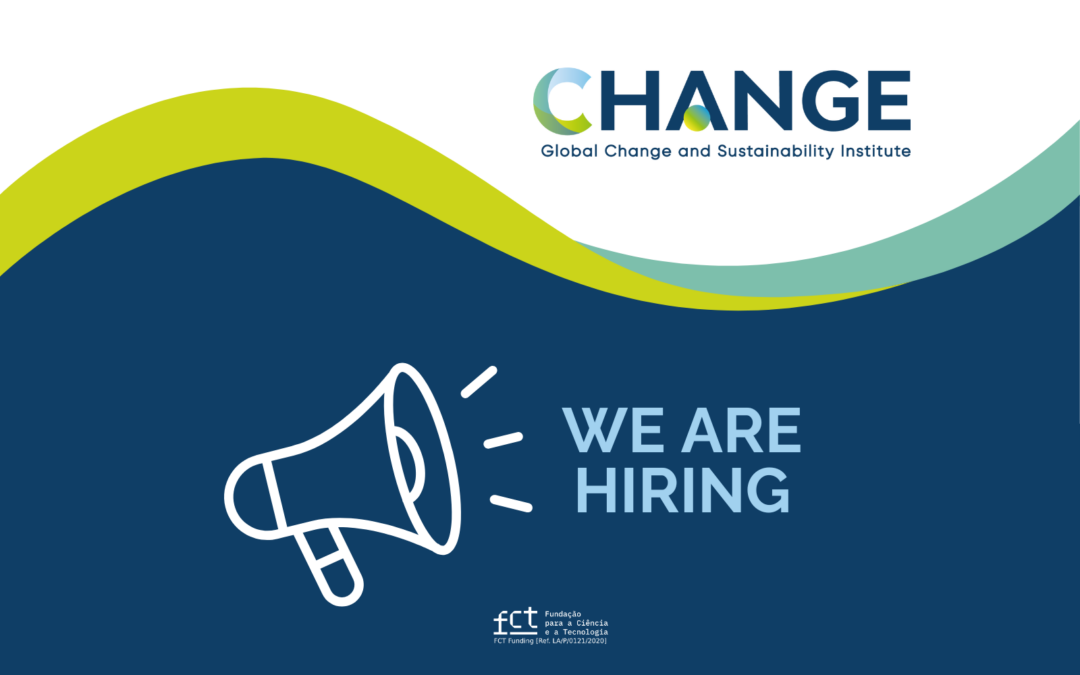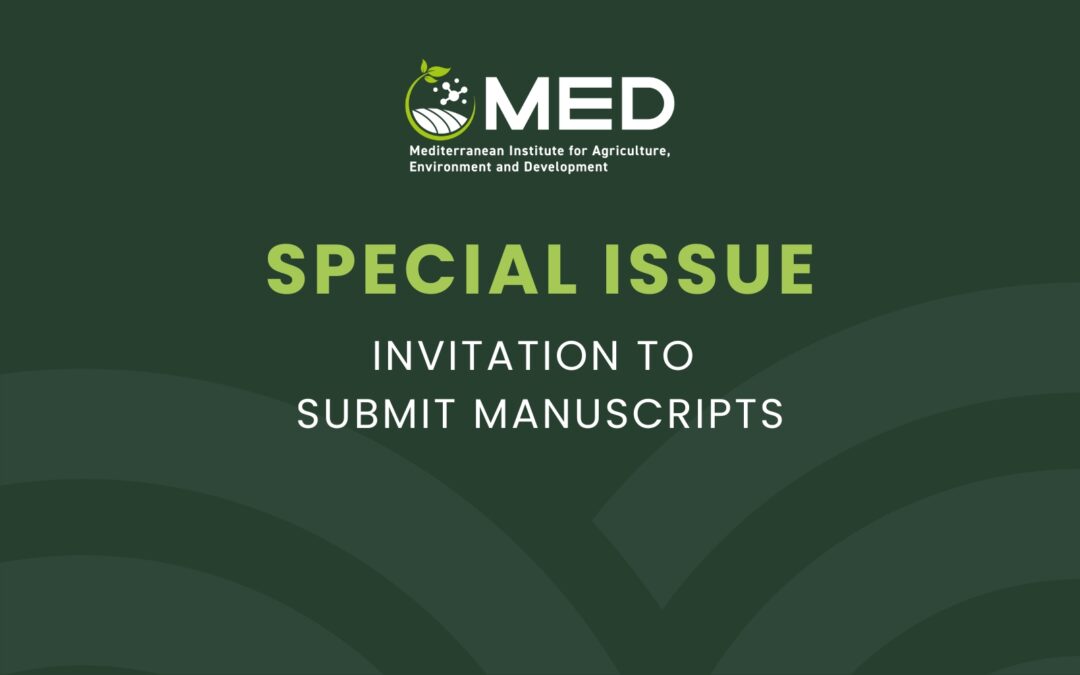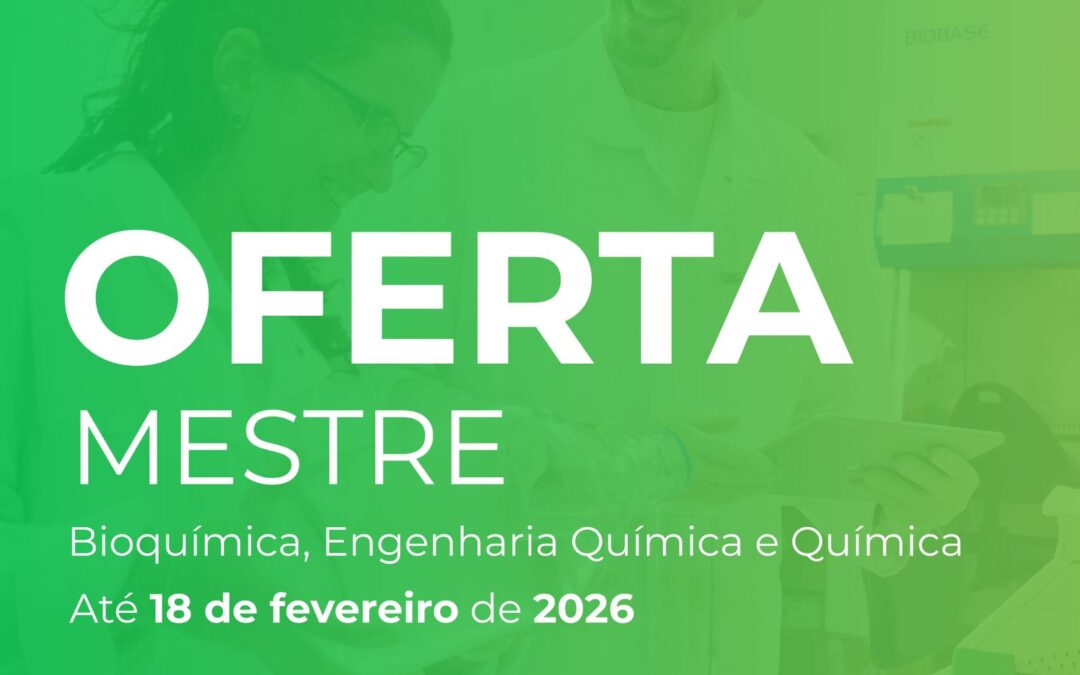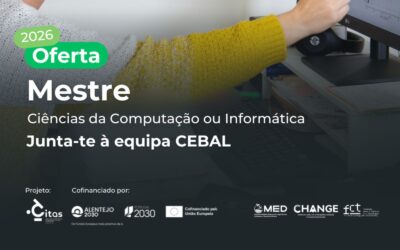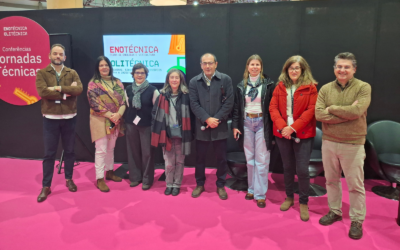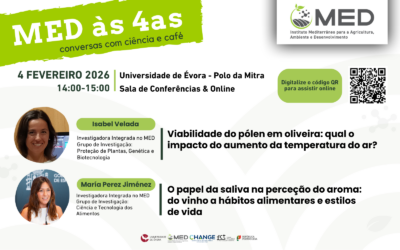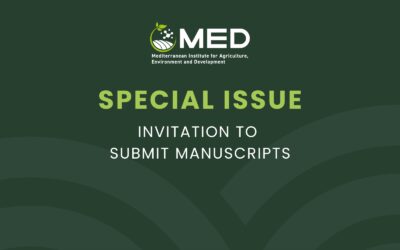Mediterranean Institute for Agriculture, Environment and Development
MORE MED NEWS
CEBAL | Mestre em Ciências da Computação ou Informática
O CEBAL - Centro de Biotecnologia Agrícola e Agro-Alimentar do Alentejo está a recrutar para uma vaga de Mestre nas áreas das Ciências da Computação ou Informática para integrar a equipa como Data Steward. Esta contratação surge no âmbito do Projeto "CEBAL para a...
MED strengthens the link between science and the productive sector at Enotécnica & Olitécnica 2026
MED took part in Enotécnica & Olitécnica 2026, held from 21 to 23 January at EXPONOR, as an institutional partner of the event. This participation reinforced MED’s role as a central actor in connecting scientific research, technological innovation and the wine and...
MED às 4as | 4 fevereiro 2026
No dia 4 de fevereiro, pelas 14h, realiza-se mais uma sessão do “MED às 4as”, as conversas com ciência e café promovidas pelo MED. Nesta sessão as oradoras convidadas serão: Isabel Velada, investigadora integrada no MED (Grupo Proteção de Plantas, Genética e...
2 Open Positions for Senior Technician in Ecology or Conservation Biology – AgroEcolines Project
Two open calls for Senior Technician positions in the areas of Ecology or Conservation Biology are now open under the project AgroEcolines – Valorização de habitats marginais lineares em agroecossistemas Mediterrânicos [Enhancing Linear Marginal Habitats in...
Food, Sustainability, and Public Health: Linking SDGs for Global Nutrition and Responsible Consumption
Invitation to Submit in the Special Issue "Food, Sustainability, and Public Health: Linking SDGs for Global Nutrition and Responsible Consumption", in Discover Food from Springer Nature. Editors: Fernando Capela e Silva (MED&CHANGE – Universidade de Évora) Maria...
MED às 4as | 21 janeiro
O MED às 4as regressa em 2026, com a primeira sessão já na próxima semana, dia 21 de janeiro, pelas 14h. Nesta sessão os nossos oradores convidados são: Marta Laranjo, investigadora integrada no MED (Grupo Ciência e Tecnologia dos Alimentos) e docente do Departamento...
Storage and Shelf-Life Assessment of Food Products: 2nd Edition
Invitation to Submit in the Special Issue "Storage and Shelf-Life Assessment of Food Products: 2nd Edition", in Foods. Editors: Rui Cruz (MED&CHANGE – University of Algarve) Submission deadline: 31 May 2026
Rádio Ciência | Marta Laranjo
Rádio Ciência: ALIMENTOS DO FUTURO Na última emissão de 2025 do Rádio Ciência, a investigadora Marta Laranjo (MED/CHANGE) e professora do Departamento de Medicina Veterinária da Universidade de Évora falou sobre o papel da ciência na transformação dos sistemas...
MAR 3, 2026
Webinar | Why “Integration and Implementation Sciences” and not just “Transdisciplinarity”?
On March 3rd at 10:00 (GMT), the first webinar of a series will take place online (link here), integrated into the Transversal Course Unit “The Practice of Transdisciplinarity in the Academic Context in Topics Related to the Sustainable Management of Natural Resources.”
This course unit, coordinated by the researcher Mª Helena Guimarães, has been made available to all PhD students at the University of Évora, including those enrolled in doctoral programmes integrated within MED.
The session will feature Prof. Gabriele Bammer (Australian National University), who will deliver a presentation entitled “Why ‘Integration and Implementation Sciences’ and not just ‘Transdisciplinarity’?”
The webinars are open to all interested participants. During the Q&A sessions, priority will be given to students enrolled in the course.
About the Invited Speaker
Gabriele Bammer is Professor of Integration and Implementation Sciences (i2S) at The Australian National University (ANU) in Canberra. She is developing the new discipline of Integration and Implementation Sciences to improve research strengths for tackling complex societal and environmental problems (see https://i2insights.org/i2s/) and she curates the popular Integration and Implementation Insights toolkit (http://i2Insights.org). She is also the inaugural President of the Global Alliance for Inter- and Transdisciplinarity. In December 2024 she received the ANU’s most prestigious accolade, the Peter Baume Award, which “recognises eminent achievement and merit of the highest order.
About the Course Unit and the Webinar Series
This course unit explores approaches, techniques, and methods that promote active participation in transdisciplinary research across different fields of knowledge. It develops key competencies such as teamwork, critical thinking, and the integration of transdisciplinary components into academic pathways.
The integration of four webinars featuring leading members of the international inter- and transdisciplinary research community aims to provide students with a grounded understanding of both the diversity and the coherence of this scientific field.
More about the UC:
https://www.uevora.pt/estudar/cursos/doutoramentos?cod=5116&v=plano-estudos&uc=PAO15568O
APR 12-16, 2026
31st EGF General Meeting "Challenges and innovations for grasslands resilience"
The Portuguese Pasture and Forage Society (SPPF), in collaboration with the Mediterranean Institute for Agriculture, Environment and Development of the University of Évora (MED) and the National Institute for Agricultural and Veterinary Research, I.P. (INIAV, I.P.), has the honour of organising the 31st General Meeting of the European Grassland Federation. This benchmark event in the field of pastures and forages will bring together between 350 and 400 researchers, academics and professionals from more than 32 European countries.
The congress will take place at the University of Évora from 13 to 16 April 2026, preceded by a pre-event on 12 April and followed by a post-tour to the Azores archipelago from 16 to 19 April.
This event is particularly important for Portugal, where pastures cover more than 2 million hectares, making up the country’s largest agricultural land use.
In addition to the scientific sessions, the programme will include a Masterclass aimed at Master’s and PhD students, dedicated to the theme ‘Methodology for Estimating Greenhouse Gas Emissions in Grassland Ecosystems’, with the participation of European experts.
The congress will centre on the theme ‘Challenges and Innovations for Grasslands Resilience’, structured around five major sessions:
- Climate change and grasslands soil and water management
- Agroforestry, pastoralism and society
- Breeding for new challenges
- Sustainable livestock production systems based on grasslands: Challenges and opportunities
- Grasslands and rural land policy tools to face global challenges
More information at https://events.iniav.pt/
Abstracts can be submitted until 15 May 2025. More info HERE.
MAY 31 – JUN 4, 2027
ITD27: International Transdisciplinarity (ITD) Conference - University of Évora
We are pleased to announce that the next International Transdisciplinarity (ITD) Conference, ITD27, will be hosted by the University of Évora in Évora, Portugal from 31 May through 4 June 2027.
ITD27 is organized in collaboration with the Global Alliance for Inter- and Transdisciplinarity (ITD Alliance), the Network for Transdisciplinary Research (td-net) at the Swiss Academies of Arts and Sciences, MED – Mediterranean Institute for Agriculture, Environment and Development and CHANGE – Global Change and Sustainability Institute, at the University of Évora. The working title of the conference is “Bridging Knowledge and Networks: Inter- and Transdisciplinarity for Transformative Change”. Current themes being explored include the role of inter- and transdisciplinarity in systemic transformation across academia, funding institutions, policymaking, and other societal sectors, and how to strengthen networks that foster lasting collaboration. These discussions are still evolving and build on key insights from previous conferences. The goal is to co-create a space that deepens dialogue and connections across individuals, institutions, and global networks—advancing transformative change through collaboration.
The Call for Contributions is expected to open in the middle of 2026. Updates will be announced in the ITD Alliance News Bulletin and will be available immediately on the ITD27 website: https://itd-alliance.org/itd-conference/itd27/.
Save the date (31 May – 4 June 2027) and join us in Portugal!
